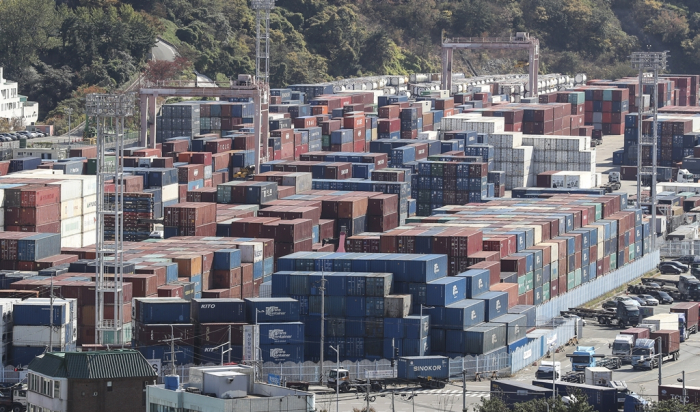South Korea’s current account surplus has shrunk on falling exports, adding to concerns over a slowdown in Asia’s fourth-largest economy amid a global downturn.
The country reported a current account surplus of $1.6 billion in September, far lower than $10.5 billion a year earlier, preliminary central bank data showed on Tuesday. Goods exports slid 0.7% to $57.1 billion, while imports jumped 18% to $56.6 billion.
South Korean companies’ sales from overseas units fell for the first time in nearly two years, indicating that the global economic slowdown has already bitten into the export-reliant economy. Net exports of goods under merchandising tumbled 30% to $1.5 billion on-year, logging the first slide since October 2020.
“The exports had been alright until the third quarter, but uncertainties grew on the sluggish IT sector and shrinking global demand,” said a Bank of Korea official.
The country’s total exports skidded for the first time last month, the clearest sign yet that the economy is in a severe downturn.ENERGY IMPORTS JUMP AHEAD OF WINTERIn the first nine months of the year, South Korea logged a current account surplus of $24.1 billion in total, less than half of the $67.4 billion a year earlier.
That came as higher energy prices boosted the country’s import bills for raw materials.
In September, commodity imports grew 23.5% on-year with purchases of energy resources jumping ahead of the winter months in the northern hemisphere. Gas imports surged 165.1%, while those of crude oil and coal soared 57.4% and 32.9%, respectively.
The travel account deficit rose 12.6% to $541 million in September from a year earlier as countries worldwide opened up their borders, easing restrictions against COVID-19. The shortfall was near half a $974.6 million deficit in August, but a Bank of Korea official said the deficit is unlikely to fall further.
“Excluding the seasonal factors, outbound travelers are increasing,” said the official.
Write to Mi-Hyun Jo at
mwise@hankyung.comJongwoo Cheon edited this article.


